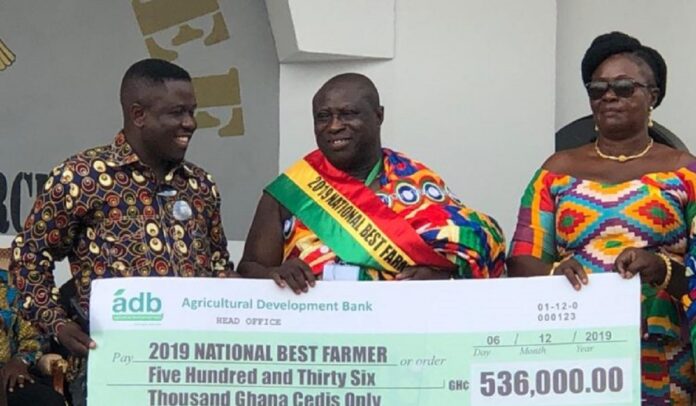National Farmers’ Day is on Friday, December 3, 2021. Ghana will once again celebrate the hardworking farmers who, notwithstanding the plethora of challenges confronting their work, continue to serve as the backbone of the nation’s food security, nutrition and contribute significantly to the country’s GDP. Despite the declining share of agriculture in Ghana’s GDP, the sector contributed about 18.7% of Ghana’s GDP in 2020 and employs about 36.1% of the country’s population (GSS, 2016).
To celebrate farmers, the government of Ghana, through the Ministry of Food and Agriculture (MOFA), undertakes a process guided by a set of criteria to identify and award high performing farmers at the district, regional and national levels. The climax of this process is the awards ceremony for the National Best Farmer, which is held annually on the first Friday in December, and the day is deservedly observed as a statutory national holiday in Ghana.
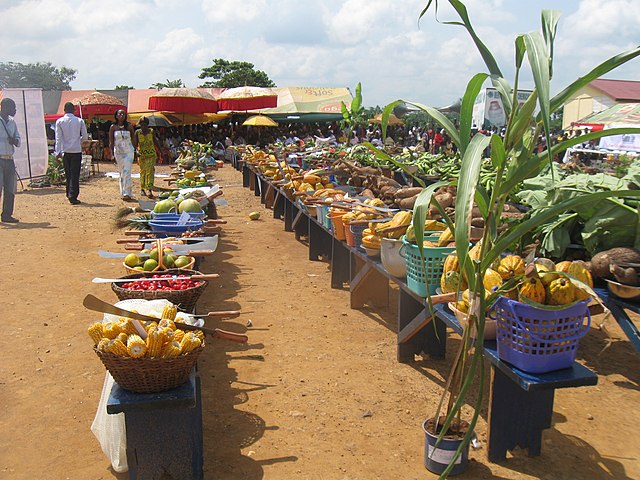
As National Farmers’ Day approaches, we look back 20 years down the line to bring you some insights on past award winners and examine what initiatives can be employed to make the awards a platform to advocate and drive greater participation, investment, and innovation in the sector to provide employment opportunities for unemployed youth and increase income levels for smallholders who are already involved in the sector.
A list of past winners from the beginning of the 21st century is presented in the table below;
National Best Farmer Award Winners (2001 – 2020)
| Year | National Best Farmer |
|---|---|
| 2001 | Nana Mathew Akwesi Bonsu |
| 2002 | Abudu Takora-Tubu |
| 2003 | Kwabena Adjei Twum Bandoh |
| 2004 | Madam Afua Frimponmaa |
| 2005 | Edward Osei Nsenkyire |
| 2006 | Mohammed Tetteh |
| 2007 | Alhaji Abdul Salaam Akati |
| 2008 | Dr. Simon Saku |
| 2009 | Davis Naa Korboe |
| 2010 | Benjamin Adjetey Adjei |
| 2011 | Ignatius Agbo |
| 2012 | Lamuel Quarshie Martey |
| 2013 | Alhaji Awudu Karim |
| 2014 | George Asamoah Amankwah |
| 2015 | Ibrahim Musah |
| 2016 | Robert Crentsil |
| 2017 | Philip Kwaku Agyemang |
| 2018 | James Obeng Boateng |
| 2019 | Charles Gyamfi |
| 2020 | Solomon Kwadwo Kusi |
The data on the award winners for the past 2 decades shows that the awards have virtually been won by males, as only 1 out of the 20 award winners for the time period under consideration is female. Madam Afua Frimponmaa won the award in 2004. Incidentally, Madam Frimponmaa was the oldest of the 20 award winners, at 75 years old at the time of the award. The youngest award winner was Davis Naa Korboe, who was 36 years old when he won the award in 2009. The average age of all the award winners is 53.
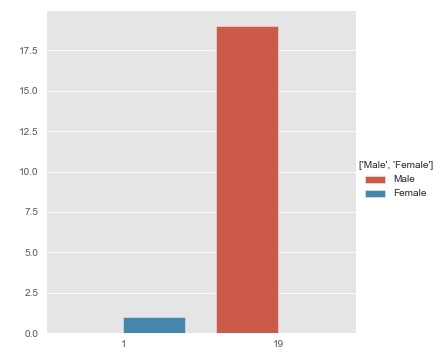
The male/female disparity is not only peculiar to the awards but is also a reflection of the gap in terms of male/female participation in the agricultural sector including farmers and other value chain actors. The Ghana Census for Agriculture (GCA, 2017) for instance shows that male agricultural holders are 2.6 times as high as females.
Regional Distribution of Award Winners (2001 – 2020)
In terms of regional distribution of award winners since the turn of the century, 7 out of the 10 (hitherto) regions had award winners. The Brong Ahafo region had the highest number of award winners with 5, and the Upper East had the least with just 1 award winner. The distribution of the awards across the 7 winning regions is presented in the chart below;
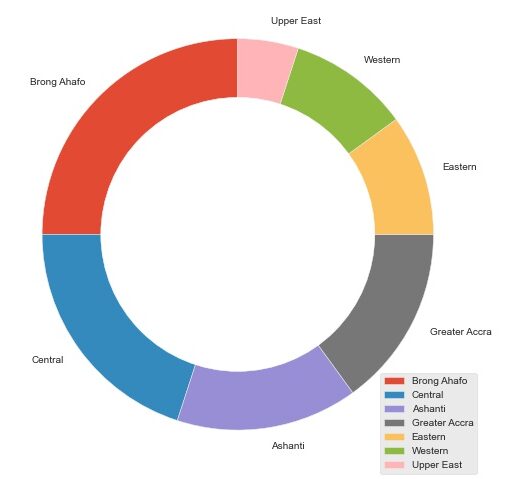
The Grand Prize of the National Farmers’ Day
Aside from the recognition and reputation that come with the National Best Farmer award, an awardee also receives other prizes. This is mostly a house or its cash equivalent. About 60% of the awardees have received 3-bedroom houses and other prizes. The last three award winners have received cash prices to the sum of approximately $100,000.00 together with other items.
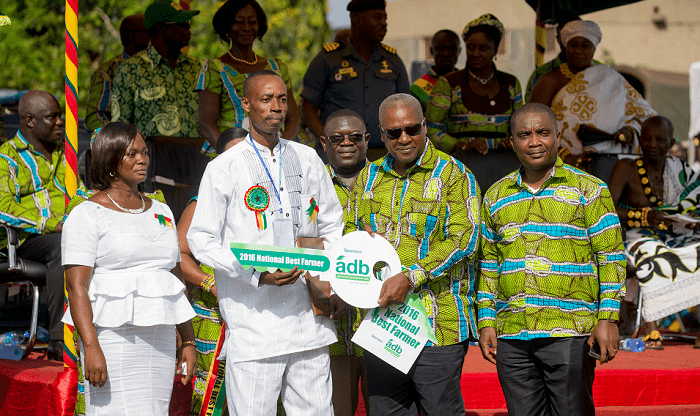
The Selection Criteria for Awards
The activities of the farmers are monitored and assessed by Agricultural Extension Agents over the farming season. A preliminary selection process is undertaken at the district and regional levels using the following criteria.
- Diversified and integrated farming operations
- Scale of operation
- Knowledge of husbandry practice
- Environmental awareness and relevance practices
- Identification of farming problems and innovation
- Records keeping
- Adoption of new technology
- Farmer’s role in his or her community
- General impression of farmer and farm
The national selection is thus based on the assessment of the selections that have been made by the respective regions.
The national farmers day on 3 December is expected to bring the usual pump and pageantry and some relief from work for Ghana’s workers who will take time out to enjoy the holiday. One key question we ought to ask is how do we celebrate farmers and the farming profession in a manner that supports development, growth and modernisation of the sector to make it attractive particularly for young people seeking a means to better livelihood whiles providing increased income levels to those who are already working in the sector.
We will continue to bring you our insights on this in a subsequent series of articles on this topic.
NB: The national farmers’ day celebration was started in 1985. This article was limited to the last 20 years due to challenges in accessing data for years prior.
